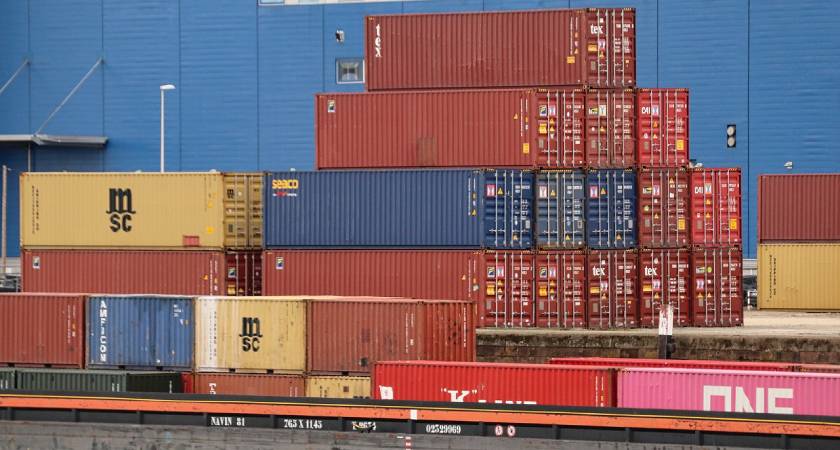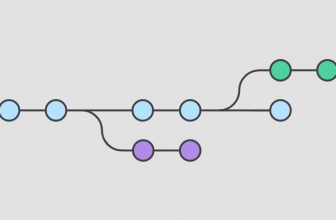
Here at SkillComplete, our Cloud expert team has consolidated a list of the Best Docker courses, tutorials, training, certifications, and classes for you. Our team of experienced developers and technical enthusiasts has conducted thorough research of all the available online courses of Docker on the leading online learning platforms such as Udemy, Coursera, Edx, Linkedin learning, and consolidated the Best Docker courses, and included free resources to help you in your learning journey. Previously we also have provided the list of best Kubernetes, Jenkins, Openshift courses. The listed programs are suitable for beginners, intermediate, and advanced developers who want to learn Docker.
With the rise of cloud computing and DevOps, the Containerization culture is universally adopted by software organizations globally. Professionals with Docker knowledge and containerization skills can bag high-paying jobs in the industry. First, let us look at a brief introduction to Docker.
A Container is a standard component of software that packages up development code and its dependencies so that the application runs fast and reliably on any computing environment. A Docker container image is a lightweight, standalone, executable packet of software that includes everything needed to run an application: code, runtime environment, system tools & libraries, and configuration settings. Using Docker, you can separate infrastructure from your application.
Features of Docker:
- Rapid and Uniform delivery – Docker streamlines the development lifecycle by permitting developers to operate in standardized settings using local containers. Containers are a solution to provide continuous integration and continuous delivery (CI/CD) workflows.
- Interactive deployment and Scaling – Docker containers are portable and lightweight. These containers make it easy for the developers to dynamically manage workloads: to scale up or tear down the services.
- Share the same infrastructure to run multiple workloads – Docker is lightweight and fast. It provides a feasible, cost-effective alternative to hypervisor-based virtual machines to utilize more of your compute capacity to accomplish your organizational goals.
By adopting Docker’s methodologies for shipping, testing, and swiftly deploying, you can significantly downsize the delay between writing code and running it in production. Let us start learning Docker from the consolidated list of the best Docker courses available online.
Best Docker Courses, Tutorials, Classes, and Certifications Online
| Course Name | Platform |
|---|---|
| Docker for the Absolute Beginner – Hands-On – DevOps | Udemy |
| Docker – Introducing Docker Essentials, Containers, and more | Udemy |
| Introduction to Docker: The Basics | Coursera |
| Docker for Developers | LinkedIn Learning |
| Learning Docker | LinkedIn Learning |
| Build local development environments using Docker containers | Coursera |
| Docker for absolute beginners | Coursera |
| Docker Mastery: with Kubernetes +Swarm from a Docker Captain | Udemy |
Docker for the Absolute Beginner – Hands-On – DevOps – Udemy
This course targets absolute beginners who wish to learn to set up and get started with Docker. This video tutorial employs a practical hands-on approach to help you practice acquired skills and develop custom images using Docker files and practice Docker-Compose. The hands-on coding exercises include real-world examples to give the best possible learning experience.
Key points :
- This course teaches introduction to Docker to beginner-level professionals.
- You will learn primary Docker Commands and practice them with Hands-On Exercises
- You will learn to build Docker images using Dockerfiles.
- You will understand the concept of Docker-Compose.
- You will learn to build an Application stack using Docker Compose Files with lab exercises.
- You will learn about Docker Swarm.
Pre-requisites: Access to a Linux System is preferred to set up Docker.
Duration: 4.5 hours | Level: Beginner | Access: Lifetime | Certificate: Certificate of completion
Docker – Introducing Docker Essentials, Containers, and more – Udemy
This learning class offers information on the fundamental concepts of Docker. In this course, you will learn to build containers and images using Docker commands. You will learn to construct multi-container services using Docker-Compose and set up private networks for them. You will gain the experience of creating multinode clusters using Docker Swarm and configuring automatic tests and a continuous integration workflow with Docker Cloud.
Key points :
- You will learn to use Docker-Compose to create multi-container applications.
- You will learn to build and run Docker containers.
- You will learn to compose your custom Docker images.
- You will learn to use Docker Commands on the command line.
- You will understand the best practices of Dockerfiles and Image building.
- You will learn about Docker Cloud and Docker swarm.
- You will compose a cluster with Docker Swarm.
- You will learn to deploy and host Docker images on Docker Cloud.
- You will learn to set up continuous integration workflows with automatic testing on Docker Cloud and Github.
Pre-requisites: Knowledge about the basics of Linux and operating systems is preferred.
Duration: 6 hours | Level: All levels | Access: Lifetime | Certificate: Certificate of completion
Introduction to Docker: The Basics – Coursera
This course is a guided project on Coursera to learn the fundamentals of Docker most simply. You can utilize the split-screen functionality to learn and perform the practical exercises alongside the tutor. For any questions regarding the course, they provide a course community platform for discussions. It is a short course to give you a basic understanding of Docker.
Key points :
- You will learn what a container is and the use of Docker as a container platform.
- You will learn to create and access a Docker container using an image from Docker Hub.
- You will learn to create customized Docker images and share them in Docker Hub.
Pre-requisites: No prior knowledge of Docker is required.
Duration: 1.5 hours | Level: Beginner | Access: Lifetime | Certificate: Certificate of completion
Docker for Developers – LinkedIn Learning
In this course, the tutor teaches you the role of Docker in application development. He then dives into the fundamental concepts of Docker and how to leverage them to maximize your efficiency. He will then guide you to install Docker on various Operating Systems. You will then learn to use the platform to develop front-end, back-end, and full-stack services; approach CI/CD with Docker; and explore other tools, including Kubernetes.
Key points :
- You will learn the Docker use cases in real-time scenarios.
- You will learn to Deploy your custom Docker application.
- You will use base commands and set up back-end and front-end architecture for your service.
- You will learn to integrate Docker with CI/CD.
- You will learn to work with swarms and Kubernetes.
Pre-requisites: No prior knowledge of Docker is required.
Duration: 1 hour | Level: Beginner | Access: Lifetime | Certificate: Certificate of completion
Learning Docker – LinkedIn Learning
In this course, the tutor introduces you to the basics of Docker, including its Containers, Base images, and Capabilities for Networking, Data management, and infrastructure optimization. You will also learn orchestration using Kubernetes.
Key points :
- You will learn to install Docker on Mac, Windows, and Linux.
- You will understand the Docker flow.
- You will learn to run processes in containers.
- You will learn to manage, network, and link containers.
- You will work with Docker images, volumes, and registries.
- You will learn about building Dockerfiles, managing networking, and namespaces with Docker.
- You will learn to create the entire system with Docker.
Pre-requisites: No prior knowledge of Docker is required.
Duration: 3 hours | Level: All levels | Access: Lifetime | Certificate: Certificate of completion
Build local development environments using Docker containers – Coursera
In this course, you will learn to create two independent and replicable local development environments for two servers and make them communicate with each other. You will learn to avoid terminal hell, issues with dependencies. You will also learn about Microservices Architecture and Integrated Development Environments.
Key points :
- You will understand the basic commands of Docker.
- You will learn to use an Ubuntu Docker image to create and execute an independent Ubuntu container.
- You will learn to build a custom Image and Container for the HTTP server and run the custom container using the HTTP server.
- You will learn to build the API server in a separate development environment.
- You will learn to use Docker-Compose to make the two servers communicate.
- You will learn to build images using Docker-Compose and make final adjustments.
Pre-requisites: No prior knowledge of Docker is required.
Duration: 2 hours | Level: Intermediate | Access: Lifetime | Certificate: Certificate of completion
Docker for absolute beginners – Coursera
This course is a video tutorial, highly rated by its enrollees. The tutor teaches the Docker architecture and commands(to manage images and containers). You will also learn the concepts of Networks and Volumes in Docker. Also, you will learn to deploy a web application using a Docker container.
Key points :
- You will learn the introduction to Docker and its architecture.
- You will learn to manage Docker as a service.
- You will use Docker CLI to deploy your first Docker container and learn Docker commands II.
- You will learn to deploy a web application (using Jenkins) as a Docker container.
- You will learn about Docker Networks.
- You will learn to establish communication between two Docker containers.
- You will learn about Docker Volumes and Bind Volumes.
Pre-requisites: No prior knowledge of Docker is required.
Duration: 2 hours | Level: Beginner | Access: Lifetime | Certificate: Certificate of completion
Docker Mastery: with Kubernetes +Swarm from a Docker Captain – Udemy
This course provides some good insights into the DevOps world and uses Docker as a powerful tool to accomplish a lot. The tutor will teach you to create Dockerfiles and Compose files, build multiple nodes in Swarm clusters, make Kubernetes YAML manifests, and deploy infrastructure-as-code methods. Learn to build a workflow using Docker in dev, test/CI, then deploy into production with YAML.
Key points :
- You will learn to use Docker, Docker-Compose, and Kubernetes on your machine.
- You will learn Docker and Kubernetes official tools from an award-winning Docker Captain!
- You will have a chance to be included in a live chat group (40,000 members!) and weekly live Q&A.
- You will gain the skills to build development environments with your code running in containers.
- You will build Swarm and Kubernetes clusters for server deployments!
- Learn hands-on with best practices for making Dockerfiles and Compose files.
- You will learn to create and publish your custom images.
- You will learn to create your custom image registry to store your apps and deploy them in corporate environments.
Pre-requisites: An understanding of command-prompt and Linux basics is preferred.
Duration: 19 hours | Level: All levels | Access: Lifetime | Certificate: Certificate of completion
Docker Crash Course for busy DevOps and Developers – Udemy
This course covers all the fundamentals of Docker software and everything you need to know about the development and deployment of applications with Docker. You will understand how to containerize a web-based application using a micro-service approach and automate the deployment using Dockerfile. Learn how to design multi-container applications and automate the workflow using Docker-Compose, and scale Docker workflow with Docker Swarm, orchestrate and deploy a large-scale application across multiple hosts in the cloud.
Key points :
- Learn to containerize a web-based application using a microservice approach.
- Design multi-container applications and automate the workflow using Docker-Compose.
- Learn to scale Docker workflow with Docker Swarm, orchestrate and deploy a large-scale application across multiple hosts in the cloud.
- Understand the best practices of Docker technology.
- Gain the skills to modify your project to apply the Docker deployment workflow and continuously deliver better software.
- Learn DevOps skills such as setting up continuous integration workflows.
Pre-requisites: An understanding of Git and Linux is preferred.
Duration: 3 hours | Level: All levels | Access: Lifetime | Certificate: Certificate of completion
Docker for Java Developers – Udemy
This video tutorial targets absolute Docker beginners. The tutor teaches you how to run a Docker container with a Docker Image pulled down from the Docker hub, and create your own Docker images and publish those images to the Docker hub. You will learn to use Docker-Compose and Docker-Swarm. The course also includes an interview with James Labocki, Product Owner at Red Hat Cloud Infrastructure.
Key points :
- You will learn to create and run Docker Containers and Docker images.
- You will understand the process of publishing the Docker Images to Docker Hub.
- You will learn to run multiple Docker Containers simultaneously using Docker Compose.
- You will learn to use Docker Swarm for Cloud-Scale Computing.
- You will learn to use Maven to Create Docker Images and Docker containers for Integration tests.
- You will learn to leverage Docker Containers for Integration tests from Continuous Integration builds.
- You will learn to create your custom Docker Swarm Cluster.
Pre-requisites: Basic Java programming skills are required. An understanding of Git and Linux is preferred.
Duration: 10.5 hours | Level: Intermediate | Access: Lifetime | Certificate: Certificate of completion
Docker Deep Dive – Pluralsight
This course teaches you fundamentals that you need to know to get started in the world of Docker and containers. It also builds a solid foundation for learning Kubernetes and undertaking the Docker Certified Associate exam.
Key points :
- You will explore the basics of containers and the foundational technologies that make them possible on Linux and Windows.
- You will discover the core concepts of images and containers – how to build, manage, and work with them.
- You will then dive into orchestration and some of the enterprise features that are now available.
- By the end of this course, you will be prepared to undertake the Docker Certified Associate exam and be ready to work with containers.
Pre-requisites: No prior knowledge of Docker is required.
Duration: 4.5 hours | Level: Intermediate | Access: Lifetime | Certificate: Certificate of completion
Docker and Kubernetes: The Big Picture – Pluralsight
In this course, you will learn the fundamentals of Docker and Kubernetes. The tutor starts with discussing the basics of Container and how it enables cloud-native application designs. He then moves on to explore the roles of Docker and Kubernetes and the basics of how they work. Finally, he will guide how to prepare yourself and your organization to migrate into a container world.
Key points :
- You will learn the basics of containers and discuss Docker and Kubernetes in detail.
- You will also learn Microservices and Cloud-native.
- You will learn about identifying suitable workloads and making your organization production-ready.
- You will develop a brief understanding of orchestration.
Pre-requisites: No prior knowledge of Docker is required.
Duration: 1.5 hours | Level: Intermediate | Access: Lifetime | Certificate: Certificate of completion
Conclusion
That’s all about the best Docker courses online. Dockers and containers have changed the technology world. Docker simplifies developing and releasing software by unifying environments and allowing teams to leverage distributed systems. Docker skills are in high demand, and DevOps jobs are among the highest-paid tech jobs. Therefore, learning Docker is a must. We hope the above list of the best Docker courses helps you in your learning journey. You may also want to check Kubernetes, Jenkins, Openshift courses.
Thanks for reading this article. If you found the list useful, share it with your friends and colleagues. In case you have any questions or feedback, please feel free to drop a note.
Happy learning!



![Best Jenkins Courses Online – Updated [February 2026]](https://skillcomplete.com/wp-content/uploads/2022/01/jenkins-blog-1-336x220.jpg)